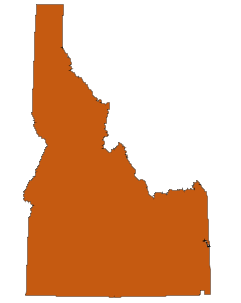PDF of testimony available here
Via Electronic Mail
The Honorable Patti Anne Lodge
The Honorable Mark Harris
RE: Constitutional and Practical Concerns with S. 1114 (“Electioneering Communication” Expansion)
Dear Chair Lodge, Vice Chair Harris, and Members of the Senate State Affairs Committee:
On behalf of the Institute for Free Speech (IFS),[1] I submit this written testimony to highlight serious concerns with a number of provisions in S. 1114,[2] which is a product of the 2018 Campaign Finance Reform Legislative Interim Committee’s recommendations to the Legislature.[3] I previously testified before the Interim Committee about these concerns at its October 24, 2018 meeting[4] and wrote to the Committee to share my concerns about this forthcoming bill in January 2019.[5] I am appearing before your Committee today to reiterate many of these concerns.
In particular, I would like to note several significant legal and practical concerns raised by S. 1114, which proposes sweeping amendments to Idaho’s campaign finance laws. Among other changes, this proposal drastically expands the existing definition of “electioneering communication” and requires groups that trigger this broad definition to file complex and burdensome reports with the government. This proposed change touches on fundamental First Amendment rights of speech, petition, and private association and is subject to “exacting scrutiny” – a heightened form of judicial review articulated by the Supreme Court under which a state must demonstrate a substantial interest and proper tailoring of the law to that interest.[6]
For decades, the Supreme Court has consistently shielded the privacy of organizational donors and supporters. This requirement reflects the constitutional concerns inherent in requiring individuals to forfeit their right to privacy of association and belief. The Court has repeatedly invalidated otherwise legitimate government policies in order to protect associational privacy, a “[f]reedom…protected not only against heavy-handed frontal attack, but also from being stifled by more subtle governmental interference.”[7] To protect this liberty, which “‘lies at the foundation of a free society,’”[8] the Supreme Court has curtailed legislative investigations,[9] overbroad subpoenas,[10] leafletting ordinances,[11] and even the authority to tax.[12]
This important right to private association allows Idahoans to come together to speak collectively – particularly on unpopular or contentious topics that could invite harassment of an organization’s donors and members.[13] Hard won in the civil rights area, this doctrine has been specifically applied to campaign finance disclosure that seeks to go beyond unambiguous campaign activity.[14]
While the Supreme Court upheld limited disclosure in Citizens United, it addressed only a narrow and far less burdensome form of disclosure to that contemplated by S. 1114. The Court merely upheld the disclosure of a federal electioneering communication report, which disclosed the entity making the expenditure and the purpose of the expenditure.[15] Such a report only disclosed contributors giving over $1,000 for the purpose of furthering the electioneering communication.[16] The Citizens United Court specifically held that the limited disclosure of an electioneering communications report is a “less restrictive alternative to more comprehensive regulations of speech,” such as generalized donor disclosure.[17] What is “less restrictive” in Citizens United is that the disclosure was focused on the entity making the message and the donors who gave for that specific activity, not the organization’s general donor list.
S. 1114 would substantially lengthen the window requiring intrusive reporting by an organization for merely mentioning a candidate (including incumbent officeholders) by name. The bill modifies the temporal window from the “electioneering communication” definition from 5:00 PM on the date of the candidate filing deadline to Election Day.[18] In 2018, this window would have stretched from March 9 to November 6 – about 242 days or approximately 66 percent of the year. This is untenable and violates the First Amendment as a burdensome regulation of speech.
For comparison, most other states and the federal government only regulate electioneering communications for 90 days total: 30 days before the primary and 60 days before the general election. The period Idaho is proposing to regulate is more than 2½ times longer than what the Supreme Court has approved. That period also runs right though the legislative season, including when many important – and contentious – bills are being debated as the session closes.[19] The proposed window is not only excessively long, it actually interferes with people talking about incumbents’ votes and actions.
Far from “transparency,” this represents nothing more than forced registration in order to discuss government affairs in Idaho. The First Amendment will not tolerate a system where citizens must give the government mountains of information in order to speak about the important issues of the day. As the Supreme Court has recognized, “[c]andidates, especially incumbents, are intimately tied to public issues involving legislative proposals and governmental actions,”[20] and it is the very discussion of public issues that the First Amendment is designed to protect.
Idaho lawmakers should keep in mind that the phrase “electioneering communication” is a term of art for a very carefully defined type of speech intended to impact speakers during only a small slice of the calendar in election years. The government’s interest is only in who is speaking shortly before an election, not who mentions a candidate – often an incumbent officeholder – the rest of the year. Expanding the electioneering communications window beyond the existing thirty/sixty-day timeframe will require the state to amass an extensive record to articulate and justify its interest in regulating that speech, which by definition is more likely to be directed at legislative and policy debates rather than elections. The state cannot simply rely on federal precedent, such as McConnell v. Federal Election Commission’s record, which focused only on the relatively limited window in federal law.[21] Notably, nearly half the states – 23 to be exact – don’t even have “electioneering communication” statutes.[22]
Making matters worse, S. 1114 proposes to substantially expand the type of speech covered by the “electioneering communication” statute. The Supreme Court has only directly approved the federal electioneering communication definition, which covers only broadcast, cable, and satellite ads – the kind of ads run by sophisticated actors with expensive lawyers to advise them – and lists only those who give large amounts of money specifically for those ads.
Idaho, in contrast, already regulates flyers and pamphlets – classic work done by small groups and unsophisticated people. It’s a trap for the unwary. S. 1114 doubles down by expanding the “electioneering communication” definition to capture speech “advertised on the internet or through social media.”[23] The term “social media” is also defined vaguely and broadly and could possibly apply to nearly all forms of communication on the Internet.[24] Under the proposed language, any website that has a community feel qualifies as “social media” – not just Facebook or Twitter, but news sites, blogs, or any other site with the ability to comment. This flies in the face of recent Supreme Court pronouncements that social media is like a street or park and less like a broadcast facility with one-way communication.[25] Or, as one senior federal judge stated: “the internet is the new soapbox; it is the new town square.”[26]
Importantly, Idaho’s existing electioneering communication regulations are already comprehensive. It would be a serious mistake to compound these restrictions on the freedoms of speech and assembly. Existing law requires donor disclosure of those who support groups making “electioneering communications” over $50.[27] Existing law also requires two reports for electioneering communications that cost more than $100: one report is due seven days before the election, the other is due thirty days after.[28] Although S. 1114 modestly increases the disclosure threshold for a nonprofit’s supporters from $50 to $250 and the reporting threshold from $100 to $1,000, this threshold remains very low.[29] For example, an individual that gives as little as $25 a month to their favorite nonprofit would have their name, home address, and contribution amount publicly reported under this bill. Lawmakers should consider reforming these very low thresholds and burdensome reporting requirements rather than regulating more speech.
In considering this bill, legislators should remember that disclosure laws implicate citizen privacy rights. Indeed, the desire to preserve privacy stems from a growing awareness by individuals and the Supreme Court that threats and intimidation of individuals because of their political views is a very serious issue.
Much as the Supreme Court sought to protect African Americans in the Jim Crow South and those citizens who financially supported the cause of civil rights from retribution, donors and members of groups supporting unpopular causes still need protection today. It is hardly a stretch to imagine a scenario in 2019 in which donors to controversial causes in Idaho – for or against immigration law reform; for or against Second Amendment freedoms; or even to groups associated with others who have been publicly vilified – might be subjected to similar threats.
The danger is real. Supporters of a pro-traditional marriage ballot measure in California have endured death threats.[30] Employees at the left-leaning New York Civil Liberties Union and center-right Goldwater Institute faced threats and harassment at their workplaces – and at their homes – due to their organizations’ positions.[31] Delegates to both major political parties’ national nominating conventions in 2016 faced death threats.[32] The list can go on, but all of the examples point to the same conclusion: in our current volatile political atmosphere, disclosure carries real danger to supporters of organizations speaking on hot button issues. If the private information of donors to nonprofit groups in Idaho were forcibly reported to the government, these citizens would similarly be at risk.
Worse still, little can be done once individual contributor information – a donor’s full name and home address – is made public. It can then be used by ideological opponents to harass, threaten, or financially harm a speaker or contributor to an unpopular cause – now or years later. Because this information remains public in perpetuity, a change in culture or political fortunes can open citizens up to harassment for long-obsolete activity. It is better to limit the opportunities for harassment by crafting reporting thresholds that capture just those donors who are truly contributing large sums to unambiguously campaign related material – and not spending for issue advocacy about public policy.
Relatedly, S. 1114 will mislead rather than enlighten voters. “Junk disclosure” is produced when a campaign finance report demands more than the names of people who give to influence politics to include those who give to nonprofits that perform a variety of functions. Divorcing the disclosure from any actual intent that the money be used to influence an election implies agreement where there may be none. This is compounded when a donation is given far in advance of any decision by a nonprofit to speak and/or when a donor may oppose the nonprofit’s specific speech.
* * *
For the above reasons, the Institute for Free Speech recommends that S. 1114 be set aside and re-worked. In its present state, S. 1114 will impose onerous and destructive regulation on much of civil society. Enactment will only deter speech, association, and petition in Idaho and invite costly federal lawsuits under the successor statute to the Civil Rights Act of 1871.[33] Should you have any further questions regarding this legislation, please contact me at (703) 894-6800 or by e-mail at tmartinez@ifs.org.
Respectfully submitted,
Tyler Martinez
Attorney
Institute for Free Speech
[1] The Institute for Free Speech is a nonpartisan, nonprofit § 501(c)(3) organization that promotes and protects the First Amendment political rights of speech, press, assembly, and petition. Originally known as the Center for Competitive Politics, it was founded in 2005 by Bradley A. Smith, a former Chairman of the Federal Election Commission. In addition to scholarly and educational work, the Institute is actively involved in targeted litigation against unconstitutional laws at both the state and federal levels. Its attorneys have secured judgments in federal court striking down laws in Colorado, Utah, and South Dakota on First Amendment grounds. The Institute is currently involved in litigation against California, Connecticut, Massachusetts, Missouri, South Dakota, Tennessee, and the federal government.
[2] Senate Bill No. 1114, 65th Leg., First Reg. Sess. (Idaho 2019) (“S. 1114”).
[3] See “Final Report,” Idaho Legislature’s Campaign Finance Reform Legislative Interim Committee at 20-26 available at https://legislature.idaho.gov/wp-content/uploads/sessioninfo/2018/interim/FinalReport_cfr_FINALREPORTCFRWG.pdf.
[4] See “Agenda,” Campaign Finance Reform Interim Committee (Oct. 24, 2018) available at https://legislature.idaho.gov/wp-content/uploads/sessioninfo/2018/interim/181024_cfr_0930AM-Agenda.pdf.
[5] See Tyler Martinez, “Constitutional and Practical Concerns with 2018 Campaign Finance Reform Interim Committee Draft DRKMF 050 (‘Electioneering Communication’ Expansion),” Institute for Free Speech (Jan. 17, 2019).
[6] Buckley v. Valeo, 424 U.S. 1, 64 (1976) (per curiam).
[7] Bates v. City of Little Rock, 361 U.S. 516, 523 (1960).
[8] Buckley, 424 U.S. at 25 (quoting Shelton v. Tucker, 364 U.S. 479, 486 (1960)).
[9] Gibson v. Fla. Legis. Investigation Comm., 372 U.S. 539 (1963).
[10] NAACP v. Ala., 357 U.S. 449 (1958).
[11] Talley v. Calif., 362 U.S. 60 (1960).
[12] Bates, 361 U.S. at 517-518 (describing license tax regime in the cities of Little Rock and North Little Rock).
[13] See Luke Wachob, “NAACP v. Alabama: When ‘Transparency’ Becomes Censorship,” Institute for Free Speech (June 28, 2018) available at https://www.ifs.org/wp-content/uploads/2018/06/2018-06-28_Issue-Brief_Wachob_NAACP-v-Alabama-When-Transparency-Becomes-Censorship.pdf.
[14] See Buckley, 424 U.S. at 75 (“[i]n considering this provision we must apply the same strict standard of scrutiny, for the right of associational privacy developed in NAACP vs. Alabama derives from the rights of the organization’s members to advocate their personal points of view in the most effective way”); id. at 80 (limiting the reach of campaign finance disclosure “precisely to that spending that is unambiguously related to the campaign of a particular federal candidate”).
[15] 52 U.S.C. §§ 30104(f)(2)(A) through (D).
[16] 52 U.S.C. §§ 30104(f)(2)(E) and (F); Citizens United v. Fed. Election Comm’n, 558 U.S. 310, 366 (2010).
[17] Citizens United, 558 U.S. at 369.
[18] S. 1114 § 1(6)(a).
[19] For example, the 2018 legislative session, which occurred during an election year, ran from January 8 to March 28, 2018. See “Session Dates – 2018 Regular Session,” Idaho Legislature available at https://legislature.idaho.gov/sessioninfo/sessiondates/?yr=2018. If S. 1114 would have been in effect, “electioneering communications” would have been regulated in the final 19 days of session, when the majority of legislation was being considered.
[20] Buckley, 424 U.S. at 42.
[21] See Citizens United, 558 U.S. at 332 (discussing and citing 100,000-page record amassed by dozens of litigants in McConnell v. Fed. Election Comm’n, 251 F. Supp. 2d 176, 209 (D.D.C. 2003) (three-judge court) (per curiam) to justify the federal window of 30 days before a primary and 60 days before a general election).
[22] This figure is obtained from an internal survey of state campaign finance laws compiled by the Institute for Free Speech. This data is available upon request.
[23] S. 1114 § 1(6)(a).
[24] Id. § 1(20).
[25] Packingham v. N. Carolina, 582 U.S. ___, 137 S. Ct. 1730, 1735 (2017).
[26] Coal. for Secular Gov’t v. Gessler, 71 F. Supp. 3d 1176, 1182 (D. Colo. 2014) aff’d som. nom. Coal. for Secular Gov’t v. Williams, 815 F.3d 1267 (10th Cir. 2016) cert. denied som. nom. Williams v. Coal. for Secular Gov’t, 580 U.S. ___, 137 S. Ct. 173 (2016).
[27] Idaho Code § 67-6628(1).
[28] Idaho Code § 67-6628(2); Idaho Code § 67-6611(2).
[29] S. 1114 § 3(1).
[30] See, e.g., Brad Stone, “Prop 8 Donor Web Site Shows Disclosure Law Is 2-Edged Sword,” The New York Times (Feb. 7, 2009) available at http://www.nytimes.com/2009/02/08/business/08stream.html.
[31] See Donna Lieberman and Irum Taqi, “Testimony of Donna Lieberman and Irum Taqi on Behalf of the New York Civil Liberties Union Before the New York City Council Committee on Governmental Operations Regarding Int. 502-b, in Relation to the Contents of a Lobbyist’s Statement of Registration,” New York Civil Liberties Union (Apr. 11, 2007) available at http://www.nyclu.org/content/contents-of-lobbyists-statement-of-registration; Tracie Sharp and Darcy Olsen, “Beware of Anti-Speech Ballot Measures,” The Wall Street Journal (Sept. 22, 2016) available at http://www.wsj.com/articles/beware-of-anti-speech-ballot-measures-1474586180.
[32] See, e.g., Alan Rappeport, “From Bernie Sanders Supporters, Death Threats Over Delegates,” The New York Times (May 16, 2016) available at http://www.nytimes.com/2016/05/17/us/politics/bernie-sanders-supporters-nevada.html?_r=0; Eli Stokols and Kyle Cheney, “Delegates face death threats from Trump supporters,” Politico (Apr. 22, 2016) available at http://www.politico.com/story/2016/04/delegates-face-death-threats-from-trump-supporters-222302.
[33] For example, Colorado passed an onerous state constitutional amendment regulating speech and association rights in the name of campaign finance in 2002. Colo. Const. Art. XXVIII. Since then, almost every Colorado Secretary of State has had to defend constitutional challenges to that amendment in federal court. See, e.g., Colo. Right to Life Comm., Inc. v. Davidson, 395 F. Supp. 2d 1001 (D. Colo. 2005) aff’d in part som. nom. Colo. Right to Life Comm., Inc. v. Coffman, 498 F.3d 1137 (10th Cir. 2007); Sampson v. Coffman, Civil Action No. 06-cv-01858-RPM, 2008 U.S. Dist. LEXIS 70583 (D. Colo. Sept. 18, 2008) aff’d in part som. nom. Sampson v. Buescher, 625 F.3d 1247 (10th Cir. 2010); Coal. for Secular Gov’t v. Gessler, 71 F. Supp. 3d 1176, 1182 (D. Colo. 2014) aff’d som. nom. Coal. for Secular Gov’t v. Williams, 815 F.3d 1267 (10th Cir. 2016) cert. denied som. nom. Williams v. Coal. for Secular Gov’t, 580 U.S. ___, 137 S. Ct. 173 (2016); Indep. Inst. v. Gessler, 71 F. Supp. 3d 1194, 1195 (D. Colo. 2014) aff’d sub. nom. Indep. Inst. v. Williams, 812 F.3d 787 (10th Cir. 2016). This list is not comprehensive and does not include multiple challenges brought in state court.














